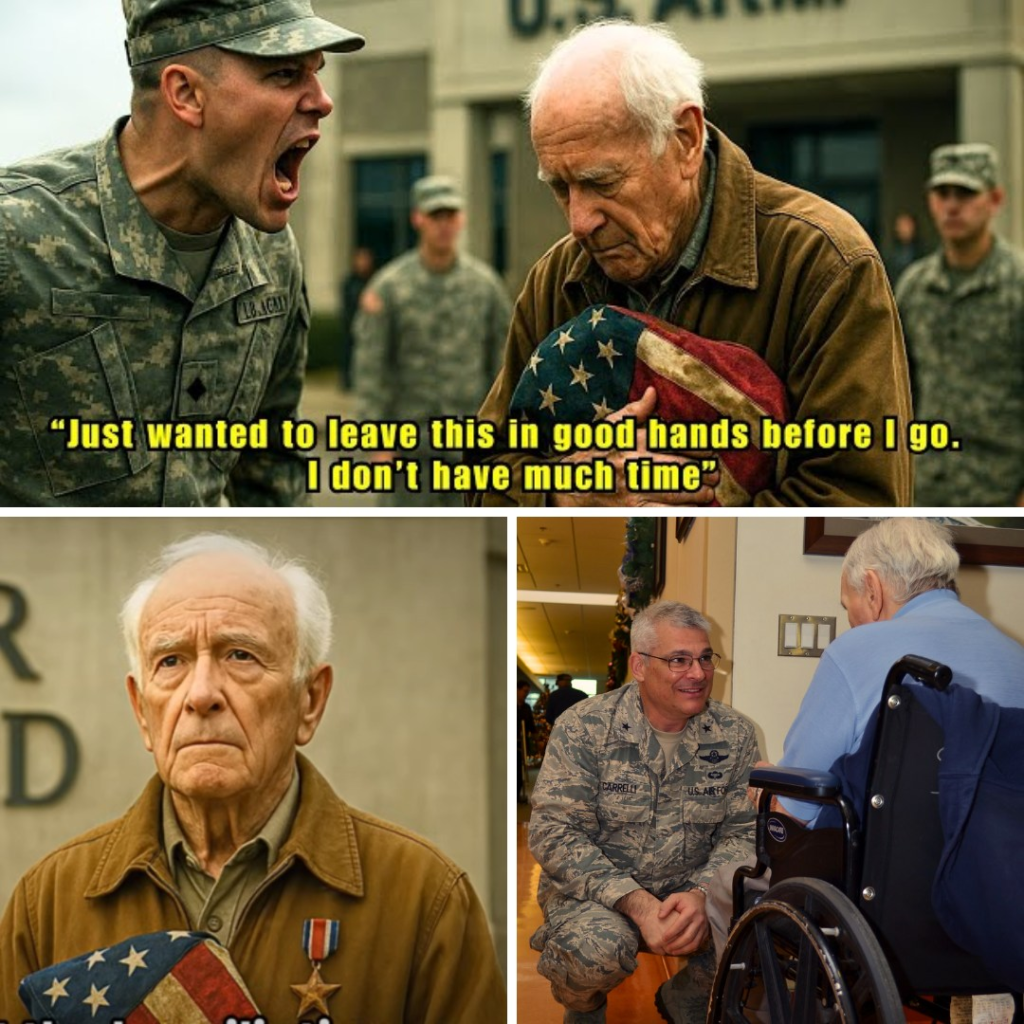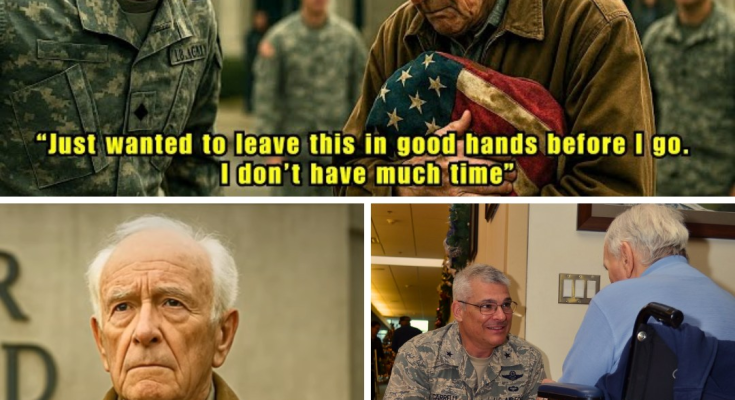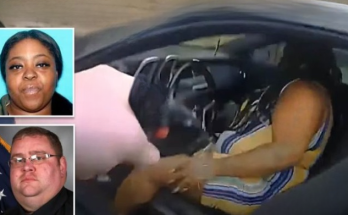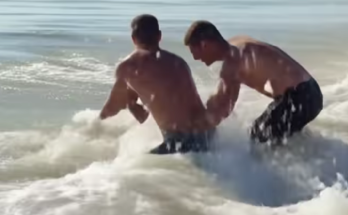John Miller’s limp slowed him as he approached the gates of Fort Cavanaugh. The ache in his hip was the kind of pain that never truly left, a reminder of a minefield in a jungle half a world away. In his hands, he carried two objects: a carefully folded flag, edges crisp and corners sharp, and a medal sealed in a weathered velvet box.

The flag had once draped the coffin of his best friend, Corporal David Raines, killed in the same explosion that had nearly ended John’s life. The medal—Silver Star—was the honor David had earned but never lived to wear. His widow had passed it to John before she died, whispering, “You’ll know when it’s time to give it back to the Army.”
And today, John thought, was the day.
He walked to the gatehouse, heart heavy but proud. The young guard barely looked up before saying, “Sir, this is an active installation. You’re not on the clearance list.”
John explained softly, his voice trembling. “I’m here to return something. It belonged to a fallen brother. I thought it should be with the men and women who carry on his legacy.”
But the soldier only shook his head, gaze fixed on his clipboard. “Orders are orders. You’re not authorized. Please step back.”
The words hit harder than shrapnel ever had. John’s throat tightened. He had imagined someone would at least listen, maybe take the medal and flag to a proper display. Instead, he felt invisible—an old man dismissed at the gate of the very place he had once defended.
Humiliated, John turned and hobbled away, clutching the relics of his past as if they were contraband instead of sacred trust.
The Long Evening

Back at his small house on the outskirts of town, John sat on his porch as the sun dipped low and rain threatened in the distance. His world had become quieter over the years; most of his neighbors barely knew the stories behind the limp or the medals tucked in a box in his attic. He had grown used to solitude, but tonight the sting of rejection cut deep.
He placed the folded flag on his lap, tracing the stars with calloused fingers. “I tried, Dave,” he whispered. “I thought they’d remember.”
The street was usually still at this hour—occasional cars, the barking of dogs, the hum of cicadas. But then, faintly, John noticed headlights in the distance. At first he thought it was traffic, but the glow grew brighter, multiplied. Vehicles. Big ones.
Moments later, the quiet neighborhood erupted in the low rumble of engines. A convoy of black SUVs and two military transports rolled slowly down the narrow street, their lights washing over picket fences and front lawns. Curtains twitched in windows as neighbors peeked out, confused.
The convoy stopped directly in front of John’s modest home. His heart pounded. Soldiers stepped out, crisp uniforms catching the porch light. Then the lead car’s door opened.
Out stepped a man John immediately recognized despite never having met him in person: General Marcus Caldwell, the current commander of Fort Cavanaugh, a chest full of ribbons on his dress blues, his stride purposeful and commanding.
The neighborhood fell into silence.
The General’s Words
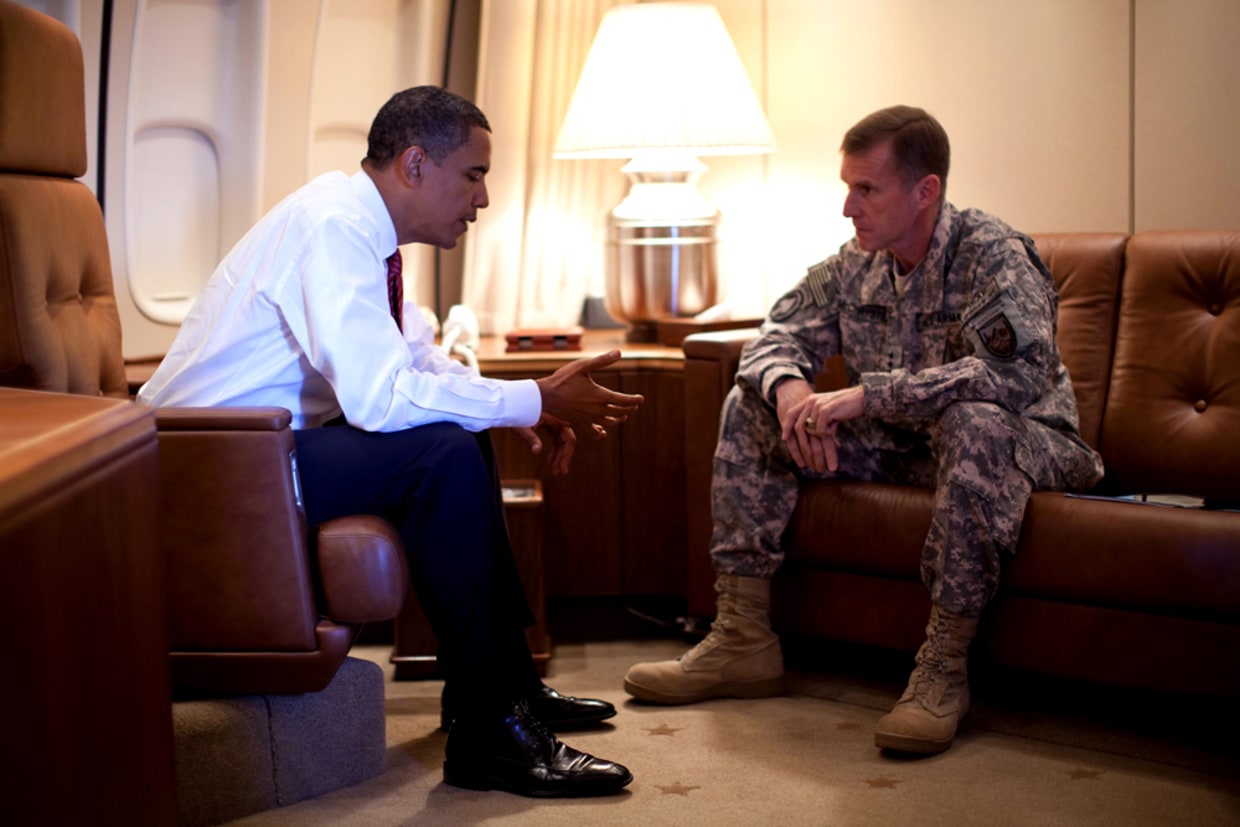
John struggled to his feet, cane in one hand, flag and medal clutched in the other. He straightened his back despite the pain. “General,” he rasped, bewildered, “I—what is this?”
Caldwell removed his cap, holding it respectfully at his side. “Mr. Miller,” he said, voice firm but warm, “I believe you tried to bring something to us today.”
John blinked, throat tight. “I did. But they wouldn’t let me in. Said I wasn’t authorized.”
The general’s jaw tightened. “Then they forgot what authorization truly looks like. You, Sergeant Miller, will always be authorized.”
Gasps whispered from neighbors gathered on porches now, watching the scene unfold.
Caldwell stepped closer. “I received word about an elderly veteran turned away at the gate. When I learned it was you—and that you carried Corporal Raines’ flag and Silver Star—I knew this matter demanded respect it hadn’t been given.”
John’s eyes stung. He held out the items with trembling hands. “They were his. I kept them safe all these years. Thought maybe the base could honor him properly.”
The general didn’t immediately take them. Instead, he motioned, and two young soldiers approached with white-gloved hands. Carefully, reverently, they accepted the flag and medal as though they were priceless treasures.
“Corporal Raines’ sacrifice will be remembered,” Caldwell said, voice carrying for every neighbor to hear. “His flag will fly in our Hall of Honor, and his medal will be displayed with his name beside it. And his brother-in-arms—” he fixed his gaze on John—“will be honored as well.”
A Neighborhood Transformed
The soldiers formed a line and saluted John. One by one, neighbors stepped forward, uncertain at first, then moved by the sight of uniformed men and women treating their quiet, limping neighbor with such gravity. Some clapped softly, others simply stood in awed silence.
For the first time in decades, John felt the weight of invisibility lift.
General Caldwell turned toward the crowd. “This man carried scars for our nation. He carried memories for his fallen friend. And when bureaucracy forgot, he remembered. Tonight, we stand corrected. Tonight, we remember with him.”
The words carried like a command, stirring the entire block.
The Final Gesture
Before leaving, Caldwell placed a hand on John’s shoulder. “Tomorrow, I want you at Fort Cavanaugh as our guest of honor. We’ll have a ceremony for Corporal Raines—and for you. And this time, no one will turn you away.”
John, usually stoic, let tears fall freely down his cheeks. “I didn’t expect all this. I just wanted Dave to be remembered.”
“He will be,” the general said firmly. “And so will you.”
The convoy eventually pulled away, carrying the sacred relics to their rightful place. But the glow of that night lingered. Neighbors who had barely spoken to John now waved with respect, some even bringing meals, eager to hear his stories. The old veteran was no longer just the man with the limp down the street—he was a living monument to sacrifice, loyalty, and brotherhood.
And as John sat once more on his porch, the night finally quiet again, he whispered into the breeze, “We did it, Dave. You’re home.”
